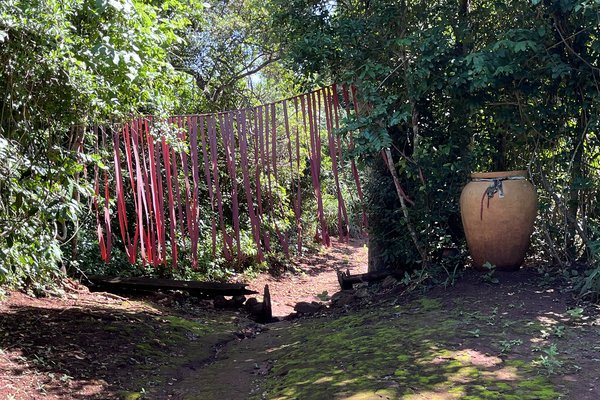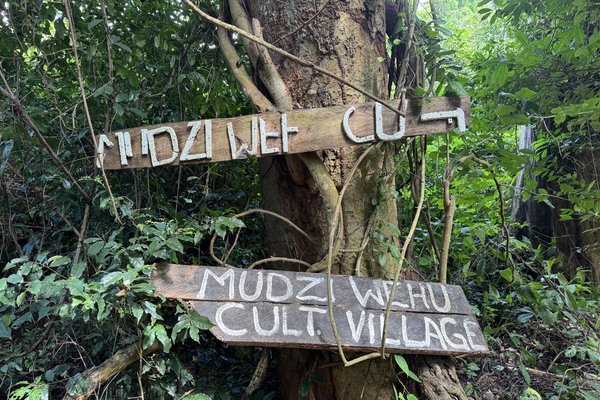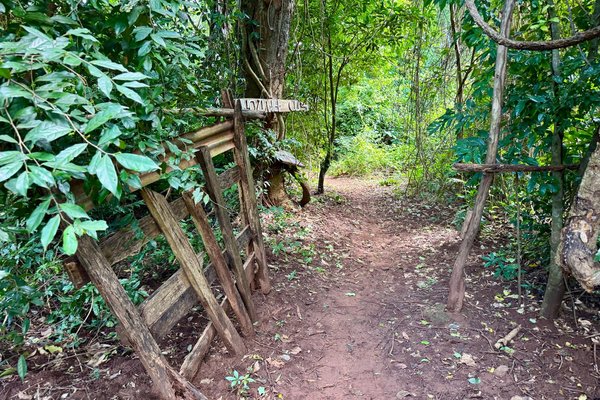Kenya
Mijikenda Kaya Forests
The Sacred Mijikenda Kaya Forests comprise the remains of numerous fortified villages (kayas) considered sacred by the Mijikenda people.
The kayas consist of a circular stockade in the forest, with houses and a meeting place for the elders inside. The villages were established in the 16th century but abandoned by the 1940s, and are now regarded as the ancestral homes. They are revered as sacred sites and, as such, are maintained by councils of elders. Access is restricted, which has had a positive impact on the forests' biodiversity.
Community Perspective: these are 9 kayas across 7 components, spread along the coast. Local tour operators from Mombasa can take you to a nearby one; Els has described such a visit to Kaya Kauma. Randi went to Kaya Kambe, and hdzy covered Kaya Mudzimuvya (one of the 3 Rabai kayas). Be aware that the popular Kaya Kinondo near Diani Beach is NOT part of the inscribed locations.
Site Info
Official Information
- Full Name
- Sacred Mijikenda Kaya Forests (ID: 1231)
- Country
- Kenya
- Status
-
Inscribed 2008
Site history
History of Mijikenda Kaya Forests
- 2008: Advisory Body overruled
- ICOMOS advised referral, noting number of improvements to be made
- 2008: Inscribed
- Inscribed
- 2007: Referred
- 2007: Advisory Body overruled
- ICOMOS advised Deferral, questioned the 36 proposed locations and management / protection
- Type
- Cultural
- Criteria
- iii
- v
- vi
Links
- UNESCO
- whc.unesco.org
- Official
-
- sacredland.org — Sacred Land
All Links
UNESCO.org
- whc.unesco.org — whc.unesco.org/
Official Website
- sacredland.org — Sacred Land
News Article
- Dec. 21, 2009 nation.co.ke — After centuries of keeping the Mijikenda sacred forests out of bounds, the forests will now open up to the public through eco-tourism projects
Community Information
- Community Category
- Cultural Landscape: Associative
Travel Information
Guided Tour Only
One thousand visitors or fewer
Discriminatory Entry Policies
Recent Connections
-
Bantu peoples
The Mijikenda language belongs to the N…
-
Untranslated Toponyms
"A kaya (plural makaya or kayas) is a s… -
One thousand visitors or fewer
DD: "Within the few years it has operat…
Connections of Mijikenda Kaya Forests
- Trivia
-
-
Minority communities
Mijikenda (nine ethnic groups)
-
- History
-
-
Bantu peoples
The Mijikenda language belongs to the Northeast Coast Bantu branch of the larger Bantu language family.
-
- Architecture
-
-
Vernacular architecture
Although there are almost no remains of houses, some thatched ritual huts remain, for example, at Kaya Fungo (AB ev) -
Dry Stone Construction
"gates of dry stone walling" (AB ev)
-
- World Heritage Process
-
-
Incorrect UNESCO 'Number of locations'
The UNESCO website shows 8 locations, but #8 Kaya Kinondo was explicitly excluded upon inscription (see link for decision). Also, the text mentions 10 components: there is a set of 3 that has been grouped into 1.See whc.unesco.org
-
- Religion and Belief
-
-
Living indigenous religions
"The Kayas provide focal points for Mijikenda religious beliefs and practices, are regarded as the ancestral homes of the different Mijikenda peoples, and are held to be sacred places. As such they have metonymic significance to Mijikenda and are a fundamental source of Mijikenda's sense of "being-in-the-world" (Crit iii) -
Sacred Forests or Groves
"The remains of the villages, and their surrounding forests have now assumed a symbolic significance and are revered as sacred sites" (AB ev) -
Taboo
"The sacredness attributed to them is a means of protection – controlling access and conduct through strength of spiritual beliefs and taboos rather than policing of the sites." (AB ev)
-
- Human Activity
- WHS on Other Lists
- Timeline
-
-
Built in the 16th century
"The sites all contain remains of kayas (or makaya), fortified villages inhabited by the Mijikenda people from around the 16th to the 19th century until their gradual abandonment between the early to mid 20th century" (AB ev)
-
- Visiting conditions
-
-
Guided Tour Only
"One needs a guide or a ‘host’ to enter the forest. This usually consists of a Kaya Elder or Elders with whom you would have consulted and asked permission. To fail to do this before entering represents intrusion and bad faith" (nom file) -
One thousand visitors or fewer
DD: "Within the few years it has operated the Kinondo site has attracted 600 visitors a year" (nom file) (Kinondo is now excluded, all other kaya are much more remote; the visitor's book for Kaya Kauma listed only about 20 entries for 2024 for example) -
Discriminatory Entry Policies
Sacred parts aren't open to 'strangers' -
Best seen from the sky
"They appear undisturbed, but in fact all true Kaya forests bear the clear imprint of man. They have visible clearings in their centers and a system of deeply incised and well worn paths leading to and from these spaces. In some of the clearings, there will be stands of coconut trees, indicating past settlement. From the air this consistent pattern of paths and clearings in the Ma-kaya is particularly striking. The effect is that of land sculpture" (nom file p10)
-
- WHS Names
-
-
Untranslated Toponyms
"A kaya (plural makaya or kayas) is a sacred site of the Mijikenda people in the former Coast Province of Kenya. Often located within sacred forests, a kaya is considered to be an intrinsic source of ritual power and the origin of cultural identity" (Wiki). "A Kaya contains the remains of fortified villages that were inhabited by the Mijikenda from the 16th century to the 1940s when they were abandoned ....because of social and economic changes ....(affecting the Mijikenda people (E.g).... colonial rule, the introduction of cash crops, the migration to urban areas, and the influence of Christianity and Islam. The kayas became less suitable for living and farming, and the Mijikenda moved to other places" (Bing AI)See en.wikipedia.org
-
News
- nation.co.ke 12/21/2009
- After centuries of keeping the Mij…
Recent Visitors
Visitors of Mijikenda Kaya Forests
- Ask Gudmundsen
- Atila Ege
- Carlos Sotelo
- David Marton
- Dolemite92
- Els Slots
- Erik Jelinek
- Iain Jackson
- Jon Opol
- kiank37
- Luis Filipe Gaspar
- Maciej Gil
- Michael Ayers
- Michael Novins
- Nihal Ege
- Randi Thomsen
- Roman Bruehwiler
- shoaibmnagi
- Svein Elias
- Thomas Buechler
- Thomas van der Walt
- Vanessa Buechler
- WILLIAM RICH
- Zoë Sheng
Community Reviews
Show full reviews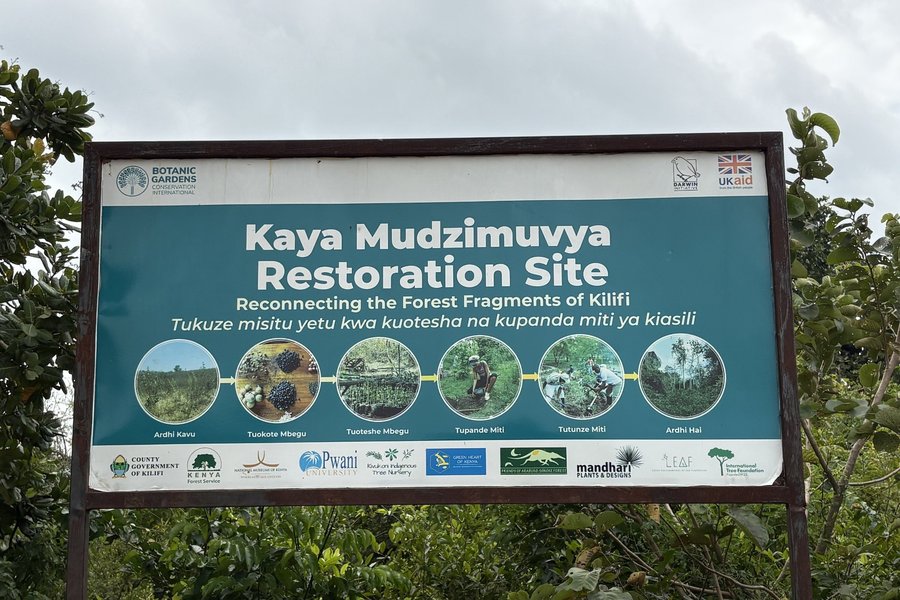
Note: I added more pictures of the site I visited.
According to the tour guide at Arabuko Sokoke Forest (which is on the tentative list), people can easily find a guide in Malindi or Kilifi to access these forests.
There is little information on this sacred forest site and the only two other visitors who shared their experience here either hired a tour guide or had their own vehicles. I decided to take public transport because of my tight budget.
My journey started from Mwembe Tayari road where I took a matatu (public bus) to Mazeras. The journey was smooth and only cost 150 Ksh. From Mazeras I took another bodaboda/motobike, which is only supposed to be 50ksh. (Obviously as a foreigner I got overcharged for twice the price even after my bargaining.) I arrived at the Dr Krapf memorial museum at Rabai where the first Christian church in East Africa is located. The museum staff helped to contact the forest staff and led me there.
We walked about 40 mins but only arrived at Kaya Mudzimuvya, a fenced forest restoration site, which seems to be within the boundary of Kaya Rabai based on the official map at WHC website. According to the museum staff, he took many primary school students here every year to learn about Mijikenda culture.
The site turned out to be a bit disappointing. I didn’t see any WH sign indicating this is part of the World Heritage site, and I was not allowed to enter …
Keep reading 1 comment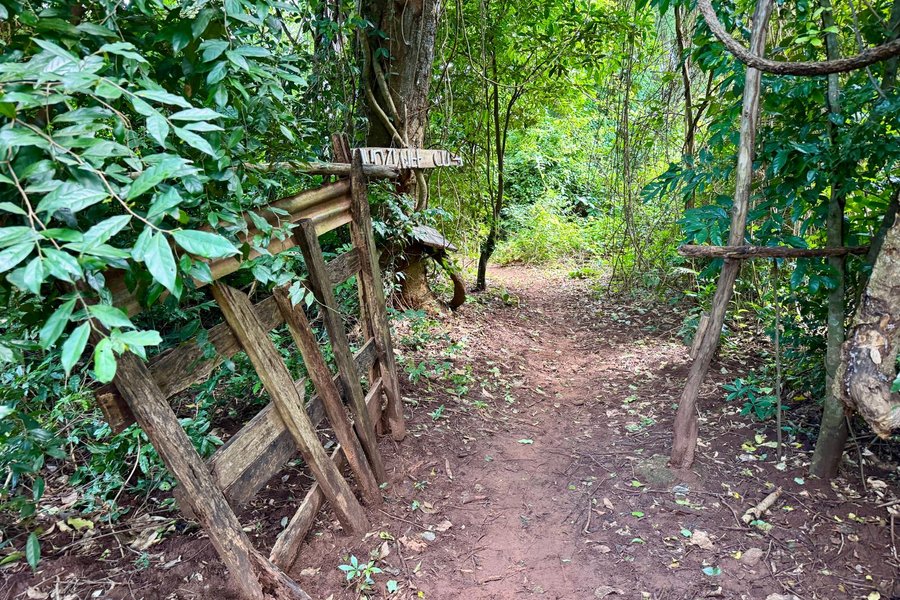
Mijikenda Sacred Forests turned out to be one of the trickier ones to plan a visit to on your own. There are few helpful reviews or other visitor information online — and most available information focuses on Kaya Kinondo, which, as Els pointed out, isn’t part of the UNESCO inscription.
So our plan was to just to go to one and hope we could figure things out as we went. We had our own vehicle and set off from Mida Creek/Watamu in the morning, Our plan was to try for a visit to one out of three of the kayas located in a row, closest to Mombasa.
Our first stop was Kaya Kambe. The forest itself — a dense green forest on a hill, easy to spot as it stands out from surrounding agricultural land. But there were no signs or visitor information. We asked around in the nearby village and were eventually directed to one of the forest keepers, who showed up after a short wait.
We politely asked if it was possible to visit the forest. He hesitated, saying he wished we had called ahead so he could have prepared a proper visit. He mentioned his number could be found via the Kilifi Museum.
Still, he was a kind and welcoming man and simply said: “Okay, let’s go!”
We walked with him into the forest, arriving at a cluster of small huts used for preparing rituals and gatherings. He explained the significance of the kaya. He told us …
Keep reading 1 comment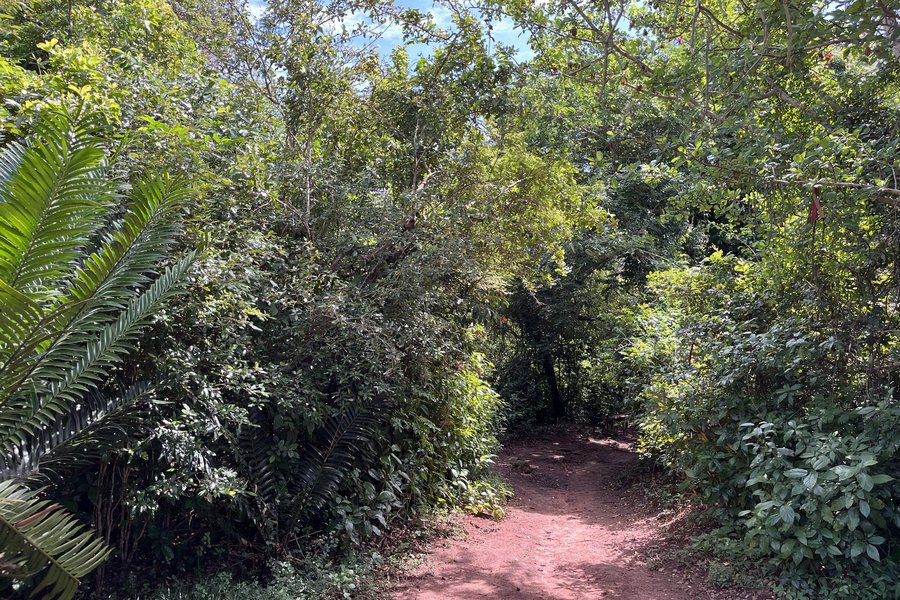
The Sacred Mijikenda Kaya Forests along the East Coast of Kenya comprise former fortified settlements (kayas) in an undisturbed forest setting, which still fulfill a sacred role in the belief of Mijikenda peoples. It's such a messy WHS: it is what you get after an AB overrule where the documents haven’t been adjusted to the final decision. When I started preparing for my June 2025 visit, I found out that we had its site history and name (it starts with “Sacred”) all wrong, a rare occurrence nowadays. Originally, it had 36 locations; now there are 8, according to the map section at the UNESCO website, but that’s an error too. Kaya Kinondo was explicitly excluded from the inscription decision. I have alerted the UNESCO WH Bureau to the mistake, but I never got a reply and the error persists.
Instead of Kaya Kinondo, which is an easy-to-access site just outside the popular beach resort of Diani Beach, I had to find another Kaya suitable for a visit. All remaining Kayas lie north of Mombasa, so that city or one of the northern coastal towns, such as Watamu, is the best base. Kaya Kauma stood out immediately as it welcomes visitors regularly as well. I went there on a private half-day tour from Mombasa with Diani Summer Tours.
Kaya Kauma is managed by the Council of Elders of the Kauma people, one of the nine groups that together are known as the Mijikenda. It lies about a 2-hour drive north …
Keep reading 0 comments
The Mijikenda Kayas are a beautiful environmental and cultural sanctuary. The sacredness of the sites is incredible and visitors are not allowed to venture into certain areas but the birds and the trees make you see nature at its best. The serenity and religious awe of the sites is thrilling and I was very privileged to partake of it. There are no entry fees but a guide has to come from the nearby villages. Once in Mombasa Kenya, one can find their way to the sites which are scattered in Kwale, Kilifi and Mombasa through a local tour operator. I recommend visiting the Fort Jesus museum for more information. You will definetly appreciate the calmness of the Kayas after the hustle and bustle of typical tourist zones.
Keep reading 0 comments
